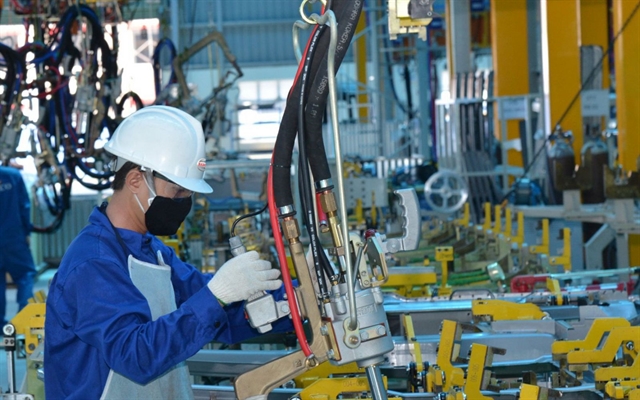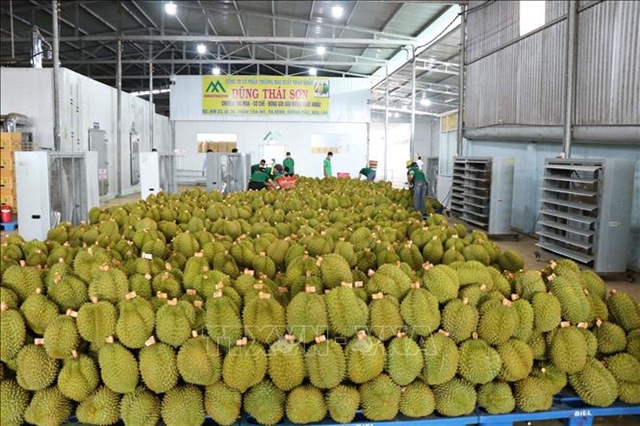

Winne Wong, Mastercard Country Manager for Việt Nam, Cambodia & Laos, discusses how the COVID-19 pandemic has changed Vietnamese consumers' spending habits, how it has helped drive cashless payment in the country and the lasting impact it may have on the country's transition process to cashless payment in the future.

|
Mastercard Country Manager - Winnie Wong
How has the pandemic changed consumer behaviours and spending habits, in particular their payment preference?
The pandemic has been changing many aspects of our life. Three years ago, when I first came to Việt Nam, cash was still the dominant payment form that people heavily relied on, as I recall it accounted for 75 - 90 per cent of the transactions.
Việt Nam then was different from countries where cashless payments have high adoption rates like Singapore, for example. With everything being cashless, I could go out and easily survive with only 2 dollars in my wallet, as I have my phone and digital payment apps like Apple Pay. However, in Việt Nam, I found myself needing a lot of cash in my wallet, which was an inconvenient practice, especially when I forgot to prepare cash in my wallet.
Since last year, we have witnessed a huge shift to digital payment, in online transactions. Due to social distancing orders, we turn to cashless or online payments in order to minimise physical contact.
This trend toward digital payment is happening across the region, according to our new payments index. At least 94 per cent of people in the Asia Pacific now consider using at least one emerging payment method such as a mobile wallet or digital currency in the coming years, a remarkable change in people’s payment preference as compared to prior to the pandemic where people hardly considered it seriously in Việt Nam.
For a population that preferred cash and cards predominantly, the pandemic really prompted the acceptance of cashless at an unprecedented pace, as from what I observed, Vietnamese people are more likely to ask if the money could be transferred, moving away from the traditional cash reliance mindset.
What other advantages do cashless payments have over traditional cash-based transactions?
We at Mastercard are advocating for cashless because we believe in the many benefits that it offers. Number one is the data from cashless transactions, which also provides great help to the government, banks, and societies in general, in planning.
For example, when you withdraw VNĐ1 million in cash from an ATM and spend it in a shop, there is no record or data of that transaction. But that kind of data is very useful for government planning or for the banks to understand their customers better so they can improve services or even expand their credit line.
For many local micro, small & medium sized enterprises (MSMEs), one of their biggest financial challenges is that they cannot get loans from the banks and must look elsewhere for funding. Such difficulty is caused by their cash-based business operations, which provides no visibility for the banks to examine the business financial capabilities other than income tax statements and financial statements. Such documents are not sufficient for banks to grant businesses a high-value loan of hundreds of thousands of dollars if they could only show a modest yearly income of ten thousand dollars.
Digital payments record a trail of transactions. Banks can look at this digital proof of money into your account and even proactively reach out to offer you credit. This is called being banked, which is not only about having a bank account, but also having access to financing and a presence in the formal economy, so as to get financing from legal entities approved by the State Bank of Vietnam (SBV). The data is there to protect consumers as well. For instance, if the banks overcharged consumers, SBV could step in.
It's important for such data to be available to governments and formal institutions so they can make the right decisions for people and for businesses.
As a large part of Việt Nam's population still remains unbanked or underbanked, what has Mastercard done to address this issue?
As a global company, we understand that different markets require different approaches. We focus on each market environment and seek to understand what is important to the consumers, as well as areas that we can add value to the market. It's not about Mastercard doing and winning more but about how our solutions can help the government’s cashless agenda, how we use our resources to support the government's directives, and how we cooperate with the banks, fintech companies, the SBV and other partners to drive the bigger objectives for the market.
One of the initiatives we are working on is the unbanked (individuals or households with no bank accounts) or the underbanked (individuals or households with bank accounts but rely on alternative methods to fund purchases and finance). We understand there is a large effort by Việt Nam to address this issue and we are working with our partners to find ways to leapfrog and reach these groups in the most efficient manner.
What's more important is to always ask ourselves whether we still follow the same ways as in the past. For example, the rural areas of Việt Nam have high mobile penetration and Internet penetration rates, even among the unbanked or underbanked segments. So, we try to figure out ways to leverage that advantage to drive cashless payment faster and expand it wider in a more customer-friendly and secured manner. We also put efforts into finding ways to replicate our programmes from different countries and their successes when bringing them to Việt Nam.
What can Việt Nam, as a country, do to speed up the transition to cashless payment?
Việt Nam has been driving the fourth industrial revolution, a collective priority of the whole government. The SBV also serves this goal with efforts to promote a cashless agenda, to build up the capabilities of local partners such as NAPAS, and for international institutions including Mastercard to contribute to.
As the framework for the transition is already in place, along with the fact that the government and the country itself is already welcoming the development, SBV can advance the progress by providing a sandbox - a safe testing environment - for fintech companies such as Mastercard to experiment innovative cashless solutions that are novel to Việt Nam.
It's crucial that banks can test new models and take losses with minimized or no repercussions in a safe playground. The fear of failing and facing great consequences, especially within big institutions, will inhibit innovations. Furthermore, with failure we can learn our lessons and continuously improve our methods. Therefore, providing fintech innovators the safeguard assurance of no penalty when any thing occurs during their experiment will help accelerate the digital transformation further.

.jpg)


.jpg)